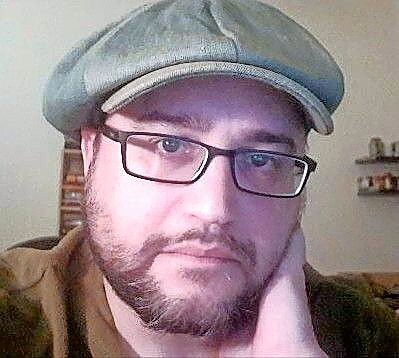Valuing a tradition of secularism among Jews
There is a strong movement on the American right, which now feels the wind at its back after the fall of Roe v. Wade, that openly seeks to abolish secularism and American laïcité. This is not, of course, new in American life, which has been generally amenable to public displays of religion, so long as they remain ecumenical.
The new movement, however, is noticeably more strident than its predecessors. For example, a recent manifesto published by the National Conservative (NatCon) movement, co-signed by right-wing luminaries like Yoram Hazony and Rod Dreher, states: “No nation can long endure without humility and gratitude before God and fear of his judgment that are found in authentic religious tradition.”
“Where a Christian majority exists, public life should be rooted in Christianity and its moral vision, which should be honored by the state and other institutions both public and private,” the manifesto states, though it adds, “Jews and other religious minorities are to be protected in the observance of their own traditions.”
The NatCon manifesto is only one expression of a much wider movement, based on beliefs that have animated American conservatives for decades. To them, the decline of religiosity in the public sphere is the source of many, if not most, of the nation’s problems—such as crime, broken families, the prevalence of abortion, and a general atmosphere of decadence and immorality—and it is only fair to admit that there is at least something to this, though it does tend to oversimplify matters.
Conservative moralist Dennis Prager, for example, once posited a “mathematical equation” for societal decline—“A + S = B = L”—“Affluence + Secularism = Boredom = Leftism.” Given that one of Prager’s mottos is “the left destroys everything it touches,” the takeaway is clear.
So is the solution. Prager wrote, “Nearly all leftists are irreligious people. And the breeding place of leftism, the university, is the most secular institution in modern society.” As a result, “The only way to prevent the left from destroying America and its core value of freedom is to make the case for Judeo-Christian religions.”
• • •
I will put aside some of the problems with this ideology, and simply ask the inevitable question: Is it good for the Jews?
For several reasons, I think the answer is no. First, the NatCon manifesto makes it clear that the hegemonic religion will be traditional Christianity, and this is extremely risky for the Jews. Like it or not, traditional Christianity has often been strongly anti-Jewish. This goes almost as far back as Christianity’s original separation from Judaism and it influenced 2,000 years of Christian theology, which is not easily elided. And it was by no means overcome by Protestantism. One of the most violent anti-Semites in history, after all, was Martin Luther.
There are, of course, philo-Semitic aspects to Christianity as well, but were the Christian tradition to be revived in full, let alone imposed on the public square, the Jews would probably not have an easy time of it. Hazony has proposed a “carve out” for religious minorities, but the idea that this “carve out” would be created, let alone honored, seems at best naive.
Moreover, in their rejection of secularism, conservatives reject precisely what put an end to at least most forms of Christian anti-Semitism. The Catholic Church, after all, only revoked the charge of deicide in the 1960s, and clearly did so as a result of liberal and secular trends in Western society and the legacy of the Holocaust.
More problematic, however, is what the rejection of secularism would do to the Jews themselves. There is a strong tendency among conservative Jews of all stripes to identify Jewish tradition more or less solely with religion, but this is a decidedly limited view.
• • •
There is a great deal more to Judaism than Torah. There is the vast lived experience of a people over thousands of years; the engagement with secular philosophies undertaken by Saadia Gaon, Maimonides, Judah Halevi, Moses Mendelssohn, Emmanuel Levinas and others; the literary accomplishments of writers like Franz Kafka, Stefan Zweig, Sholem Aleichem, Arthur Schnitzler, Norman Mailer, Saul Bellow and the modern revivalists of the Hebrew language; the scientific genius of Einstein and Freud; involvement in politics ancient, medieval and modern; the secular study of Jewish history, society and culture; and so on.
Perhaps most of all, there is Zionism itself, which has had religious movements within it, but nonetheless is and has always been more or less entirely of this world. It is a movement wholly involved in secular politics that has labored long and hard to synthesize the Jewish past with the Jewish present through the transmutation of Jewish tradition into secular Zionist ideals.
The Jews, in other words, have a secular tradition as venerable, honorable and valuable as its religious tradition. To abolish secularism would be, in effect, to abolish this tradition, and with it one of the primary ways the Jews have found strength and meaning in an often hostile world.
Jews have labored long and hard to stay true to themselves, and they have done so by both religious and secular means. To throw out one in favor of the other would leave the Jewish people diminished, and one of the great glories of the Jewish people is that we have never allowed ourselves to be diminished. We should not, even with the best of intentions, do so now.

 67.0°,
Mostly Cloudy
67.0°,
Mostly Cloudy 





